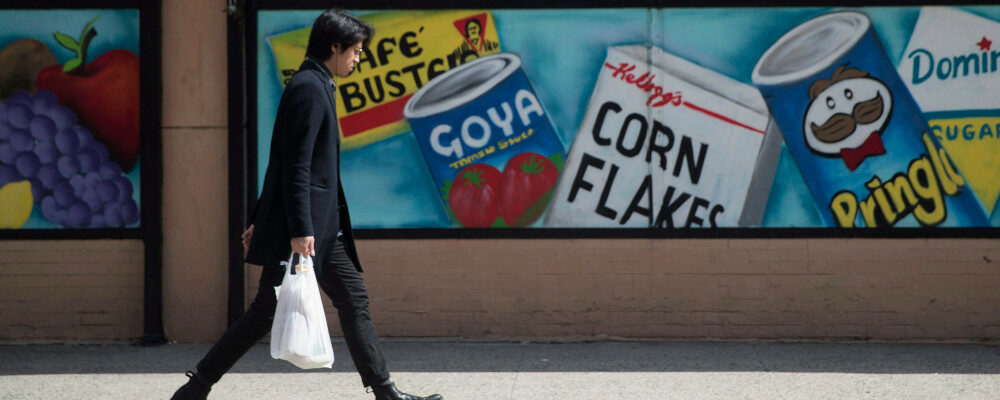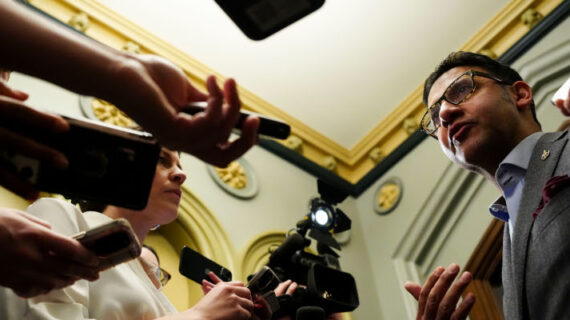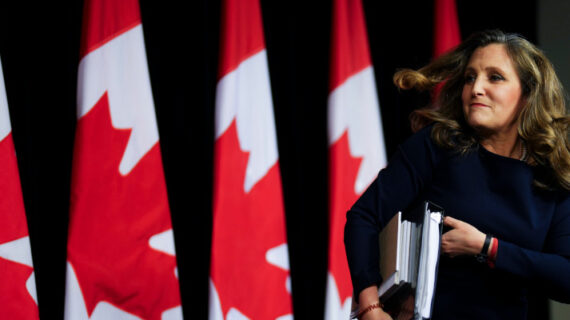Governments are much better at identifying problems than coming up with solutions. Human behaviour is complex and diverse. People make choices based on lifestyle, preferences, and impulses. It’s hard to design a single policy that will work for everyone. This means that in practice, heavy-handed policy interventions often have unintended consequences. Enter the plastic bag ban.
I was out for a walk with my partner. We live in the kind of 15-minute neighbourhood that for some reason people on the internet are mad about. We did a bit of shopping and then decided we needed groceries. Fine, we’ll pop over to the Loblaws. Easy.
The only problem was that since this was an unplanned trip, we didn’t have any reusable grocery bags. We’ve been using reusable bags for years, as we did earlier that morning when we went to the farmer’s market. It’s not an inconvenience when you start the trip from your house. When you’re already out, it doesn’t make much sense to walk home to grab them.
So we did our shopping and bought some reusable bags at the check-out. Of course, those bags will never be re-used, since we’ve already got plenty of higher quality reusable bags. They don’t make good garbage bags, unlike the old plastic bags, so into the landfill they go after a single use.
Excessive use of plastic bags may in fact be a problem. That goes beyond my technical competence. I’ll leave that one up to scientists. But insofar as it is a problem, from a policy perspective it’s hard to see how a ban is the right approach. After all, there are many circumstances where people will be stuck buying a reusable bag they don’t need and sending it straight to the landfill. That is a problem, given that if reusable bags aren’t used many times they end up being worse for the environment than single-use plastic bags.
Rather than a hard shove, governments should nudge consumers. If this sounds familiar, it was all the rage during the Obama (and Cameron) administration. The idea, pioneered by economists Cass Sunstein and Richard Thaler, was that governments should nudge people in the right direction rather than forcing them to make decisions in their own interest. It’s an appealing idea in many circumstances, though one that can certainly be taken too far. But if the choice is between ignoring a problem, taking a heavy-handed approach, or nudging, the softer approach might well be the best option.

The softer approach isn’t exactly novel. We’ve already had plastic bag fees in the past. Rather than forcing reusable bags on consumers, why not at least allow plastic bags with a large fee? I would certainly pay fifty cents for a plastic bag in a pinch. People doing larger grocery shops (particularly those driving) would be nudged to keep reusable bags handy in their vehicles. The rest of us would be heavily incentivized to bring reusable bags, but in a pinch would be spared the unpleasant choice of having to juggle a bunch of loose items home or buy a reusable bag we don’t need.
The plastic bag ban seems like yet another example of governments forgetting that non-drivers exist. The overwhelming majority of parliamentarians are drivers. It’s easy to see how they would design policies to shape the behaviour of people like them while forgetting that their experiences aren’t universal. As is often the case with policies made exclusively by and for drivers, the unintended consequences are largely borne by everyone else. Ironically, they’re making the lowest carbon lifestyles less appealing in the name of the environment.
When governments identify problems that they deem worthy of policy interventions, they need to remember that not everyone has the same lifestyle and preferences. One-size-fits-all solutions probably aren’t going to work. Instead, they should focus on tweaking incentives rather than forcing choices on people. In other words, nudge consumers rather than push them.




